Tea meditation uses tea as a medium to connect with the present. Which cup to use? What color, shape are the tea leaves? How do they smell? What does the water sound like, feel like? By focusing on the here and now, a familiar routine turns into an act of meditation, bringing peace and quiet to our minds and bodies.
Here are some key points on tea meditation shared by Ryoko Saito, whom KINTO collaborated with on a yoga event and who advocates a lifestyle with yoga and mindfulness.
Here are some key points on tea meditation shared by Ryoko Saito, whom KINTO collaborated with on a yoga event and who advocates a lifestyle with yoga and mindfulness.
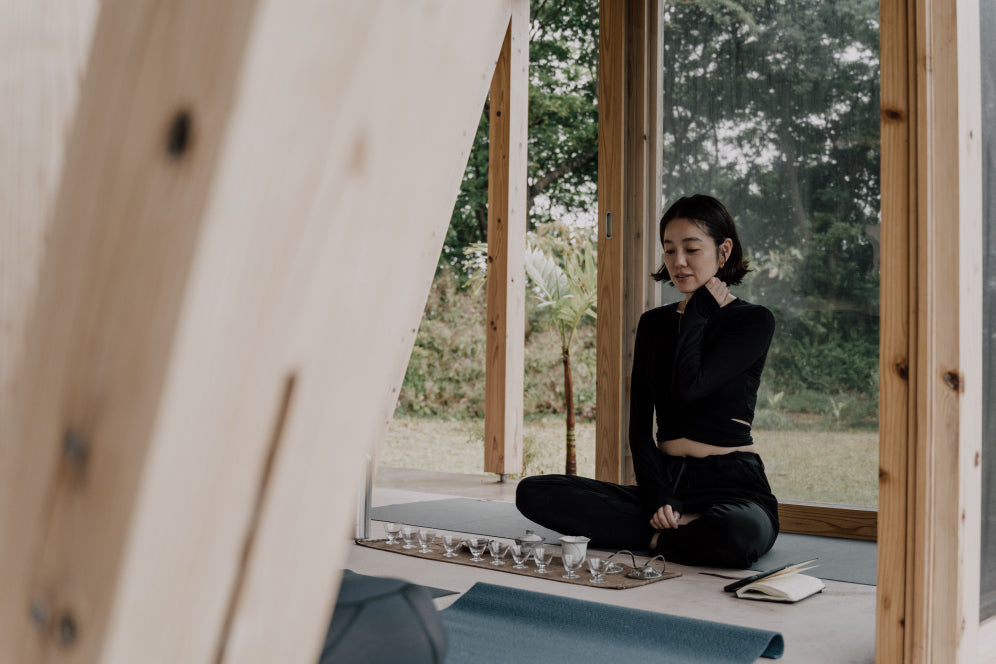

Inspired by “Shizuku-cha,” a style of Gyokuro tea from the Yame region in Japan, it helps us appreciate the umami and depth of the tea at various temperatures.
It does not require any special tea leaves – it is a very laid back ritual that can be practiced with any type of tea leaves and do not need to be prepared over the stove. The idea is to tune in to your senses as you watch the tea leaves slowly unfurl and release their flavor and color.
It does not require any special tea leaves – it is a very laid back ritual that can be practiced with any type of tea leaves and do not need to be prepared over the stove. The idea is to tune in to your senses as you watch the tea leaves slowly unfurl and release their flavor and color.
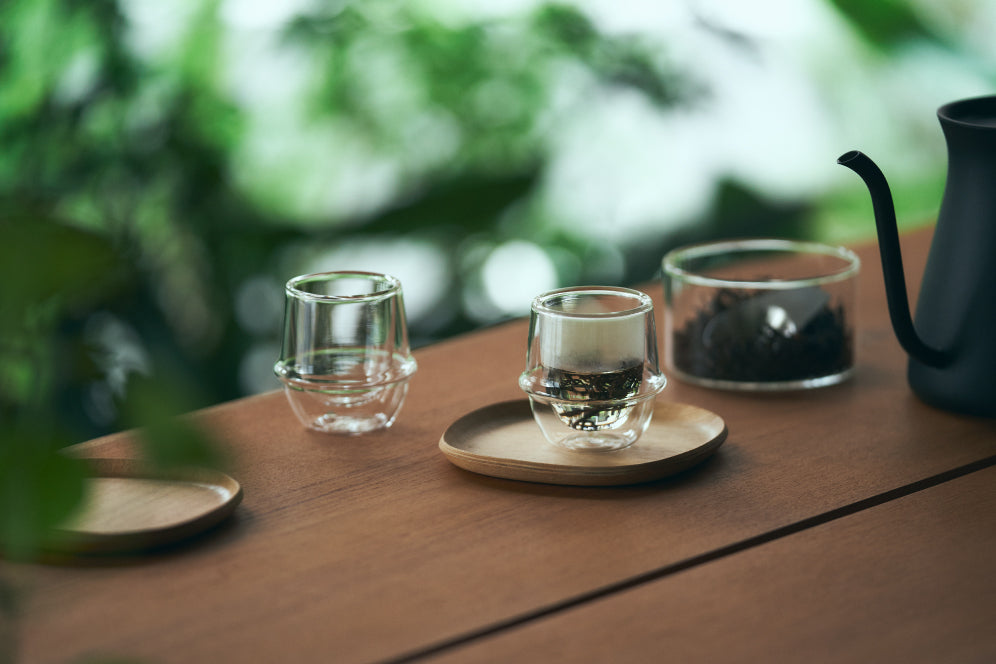
In a heated cup, place one teaspoonful of tea leaves, and pour enough hot water to cover the leaves. Then wait for two minutes.
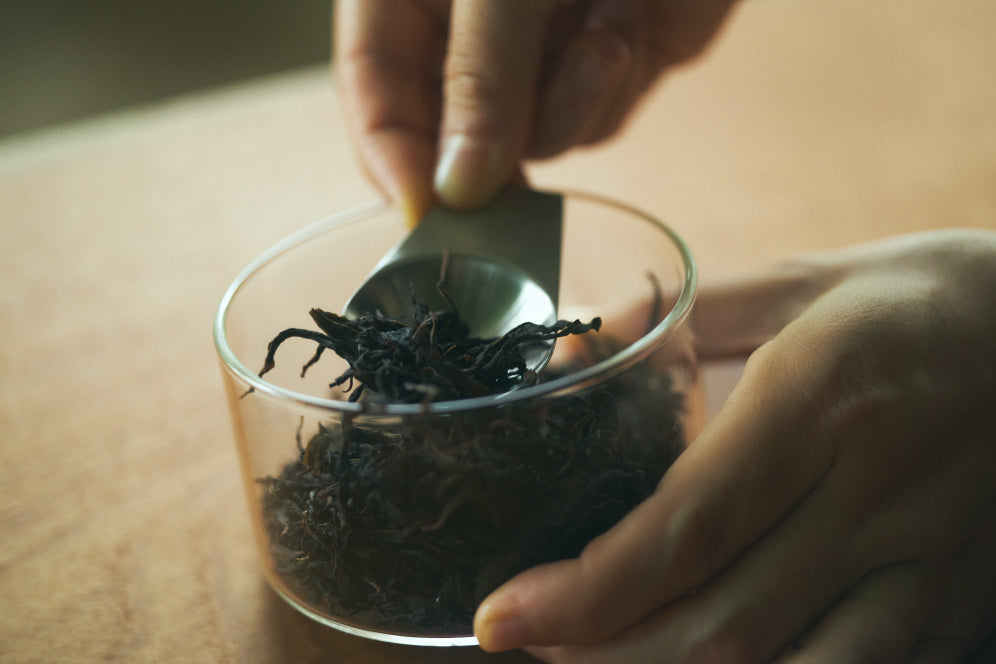
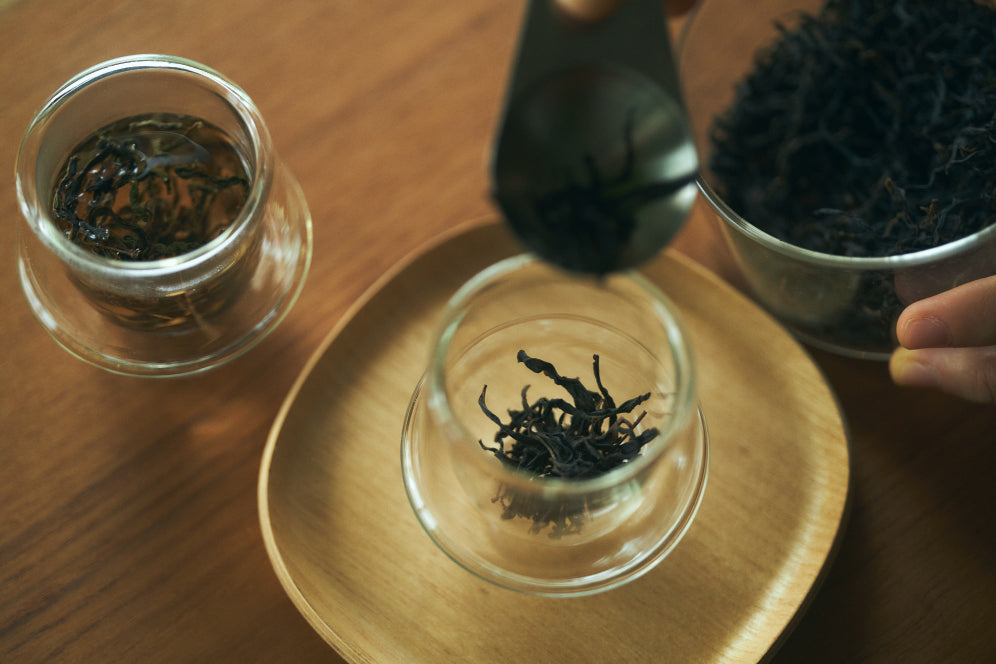
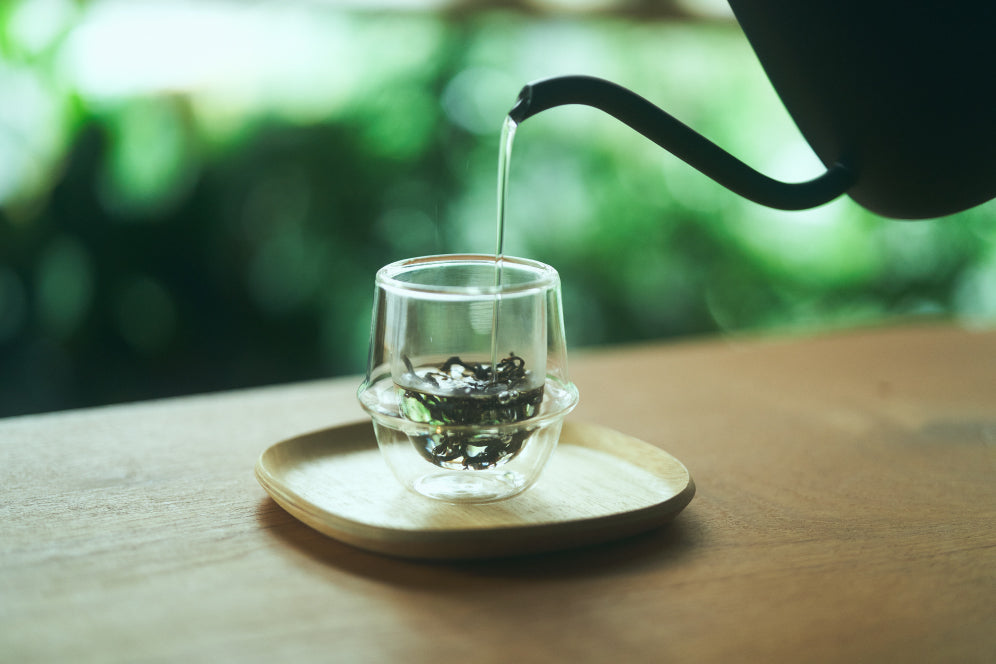
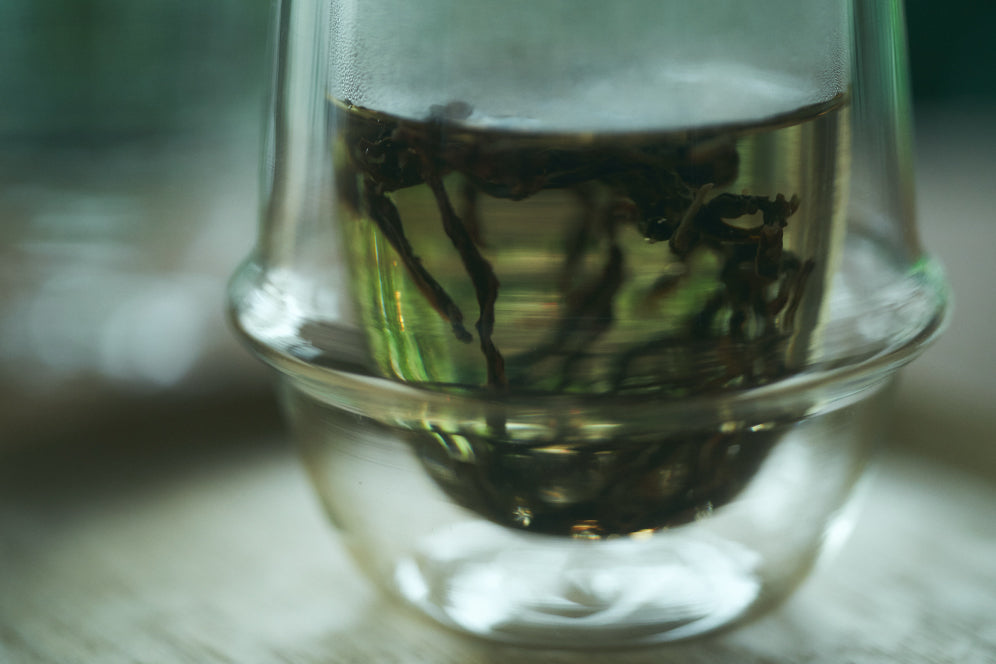
Pick up the cup, and focus your attention not only on the flavor but also the color, shape of the tea leaves and how they shift and change.

Bring the cup to your nose. Inhale deeply, taking in the state of your mind and body today as you would when you meditate, and enjoy the tea with your whole body. When the cup is empty, you may notice that the leaves keep unfurling, that they are still releasing an aroma.

When you are finished, the tea leaves can be put in a water bottle with water to enjoy as cold brew tea.
Tea meditation can be practiced whenever you have time for a cup of tea – whether in the morning, when taking a break from work, or winding down at night – and can help us reconnect with our minds and bodies ourselves through a moment of peace.
Tea meditation can be practiced whenever you have time for a cup of tea – whether in the morning, when taking a break from work, or winding down at night – and can help us reconnect with our minds and bodies ourselves through a moment of peace.


[PARTNER INFORMATION]
Ryoko Saito
Interested in the human body and the invisible mind, began a systematic study of yoga in 2008 and yoga-based work in 2014. Ryoko continued on to study mindfulness meditation and has been active in brand collaborations, event appearances, and mindfulness meditation workshops for corporations and the healthcare industry. Currently, through "Tea Meditation," which uses the space and time of "tea" as meditation, she guides others in finding calmness and serenity, awareness of the blink of an eye in the daily unconscious, opening the body and mind generously, receiving, and feeling the texture of the outside world. Her creed is love, compassion, and understanding of others.
www.ryoko.tokyo
Ryoko Saito
Interested in the human body and the invisible mind, began a systematic study of yoga in 2008 and yoga-based work in 2014. Ryoko continued on to study mindfulness meditation and has been active in brand collaborations, event appearances, and mindfulness meditation workshops for corporations and the healthcare industry. Currently, through "Tea Meditation," which uses the space and time of "tea" as meditation, she guides others in finding calmness and serenity, awareness of the blink of an eye in the daily unconscious, opening the body and mind generously, receiving, and feeling the texture of the outside world. Her creed is love, compassion, and understanding of others.
www.ryoko.tokyo